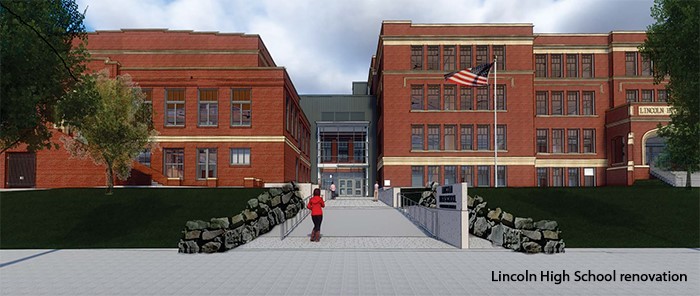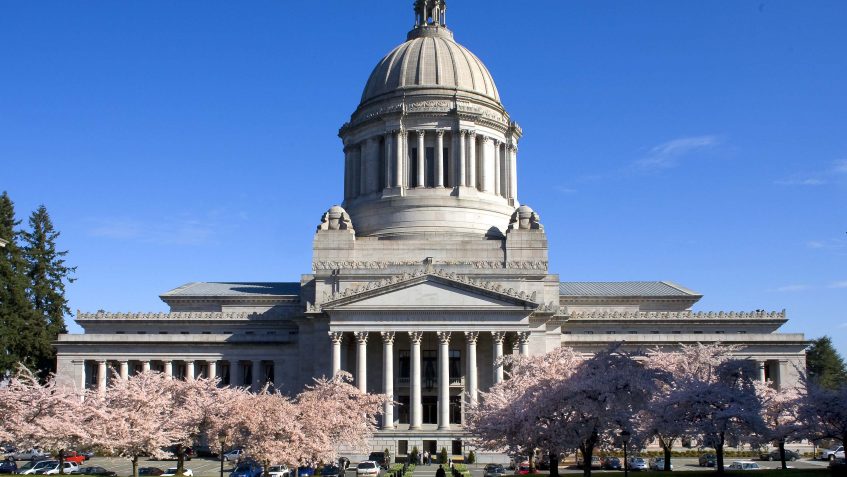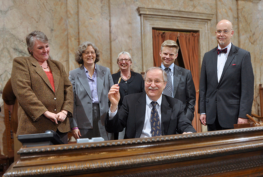Last week’s historic snow disrupted school, work, and life in general for many of us. As a parent with four kids in Seattle Public Schools, I know our entire family was itching for schools to reopen. The Legislature was also disrupted, as all committee hearings were canceled last Monday – the first weather-related interruption of a legislative session in recent memory. We now face the session’s first key deadline: policy bills that do not pass out of committee by this Friday are dead unless they are necessary to implement the budget. In this update, I’ll highlight a few of the measures that I have been working on this year.
School construction

For several years, I have been working on modernizing our state’s school construction assistance program. Schools here in Seattle and around the state rely on this funding to relieve overcrowding and enhance instructional space. This past summer I served on the School Construction Task Force, which held hearings and visited schools around the state. We learned that the outdated formula in the current program understates both the size of facilities needed for effective and modern schools and the cost of construction. This leaves school districts with limited capital support from the state to modernize facilities. If passed, SB 5853 would update the formula to reflect actual costs and student space needs and increase the minimum amount of state support. The bill received a public hearing in the Senate Ways & Means Committee last week. I am hopeful that we can make these long-overdue changes to address the needs of our students and educators.
Affordable housing
One piece of the puzzle of increasing the supply of affordable housing in our region is to lower barriers to building condominiums. During the interim, I held a work session in the Senate Law & Justice Committee on this issue and heard compelling testimony both about the crucial role that condos can play in a well-functioning housing market and about challenges with our existing statutory warranties of quality. I then worked to broker a deal among the major stakeholders in this area, including the Washington Realtors, the Building Industry Association of Washington, the Master Builders, the Washington State Association for Justice, and the Community Associations Institute. The resulting bill, SB 5334, will make changes to the condo warranty statute to provide a better balance between builders and buyers. The bill passed unanimously out of the Law & Justice Committee and is awaiting a vote by the full Senate.
Sexual assault
Another subject that my committee tackled over the last interim was sexual assault. We heard from victims, prosecutors, public defenders, and advocates about how our current statutes of limitation prevent justice. For example, if an adult victim does not report a rape within one year, then prosecutors have only three years to bring charges. SB 5649 would eliminate the statutes of limitation for child rape and child sexual molestation; eliminate the reporting requirement for rape of an adult and lengthen the statute of limitations to 20 years (for Rape 1 and 2) and 10 years (for Rape 3); and change the definition of Rape 3 to remove the requirement that a victim express a lack of consent. The bill passed unanimously out of the Law & Justice Committee.
Ending the death penalty
It has been nine years since the death penalty was administered in our state, and last year the state Supreme Court ruled that the law is unconstitutional because it was “imposed in an arbitrary and racially-based manner.” Last Friday, the Senate passed SB 5339, which would remove the death penalty from our law, leaving life in prison without the possibility of release or parole as the punishment for anyone convicted of aggravated first-degree murder. I believe that the time has come for our state to put an end to capital punishment, which is expensive, morally problematic, and inconsistently applied.
Human remains
A few weeks ago, I wrote about ESSB 5001, which would expand options for disposing of human remains. The bill would allow both alkaline hydrolysis (reducing remains in a bath of water and a strong chemical base) and natural organic reduction (placing bodies in a vessel with organic material such as wood chips, accelerating the natural transition to nutrient-dense soil). I am happy to report that the Senate passed the bill last week by a vote of 36-11; it is already scheduled for a public hearing in the House Consumer Protection & Business Committee this week. You can watch my floor speech on the measure here.




